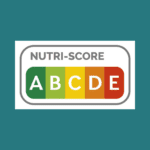Unlike other foods and beverages whose labels are regulated by the United States Food and Drug Administration (U. S. FDA), the labeling of alcoholic beverages is regulated by the Alcohol and Tobacco Tax and Trade Bureau (TTB). Therefore, the TTB has not followed FDA requirements for products to have a Nutrition Facts Panel. New proposals made by the TTB earlier this month would have labeling for alcoholic beverages come closer to that of non-alcoholic beverages. This could include serving sizes, calorie counts, allergen declarations and nutritional information for protein and carbohydrates.
The proposals for updated labeling are designed to provide consumers with more knowledge about what they are drinking. Industry groups worry about impediments to innovation even as they acknowledge that some consumers want to see more detailed labels. Changes would add costs for manufacturers to create and adopt new labels. The proposals come after years of pressure from consumer and health groups to see nutritional and allergen information on alcoholic beverages.
Currently the TTB Notices of Proposed Rulemaking (NPRMs) remain under review at the White House Office of Management and Budget. The proposals, which were published on January 17, 2025, are open to public comment for the next 90 days.
About the Author

Julie Holt is a subject matter expert in the areas of food and beverage, additives and regulatory strategy. Ms. Holt’s expertise includes the beverage industry, with current consulting support across multiple beverage categories.
Holt has more than 25+ years of regulatory experience in the food and food ingredients industries and managed her own advisory firm, Scientific & Regulatory Solutions LLC, prior to joining FoodChain ID. As a consultant, she supported several food and beverage clients including a Fortune 50 company. Holt has provided global regulatory knowledge covering more than 200 countries. Her consulting efforts have supported global regulatory needs, R&D projects, sustainability goals and innovation initiatives.









